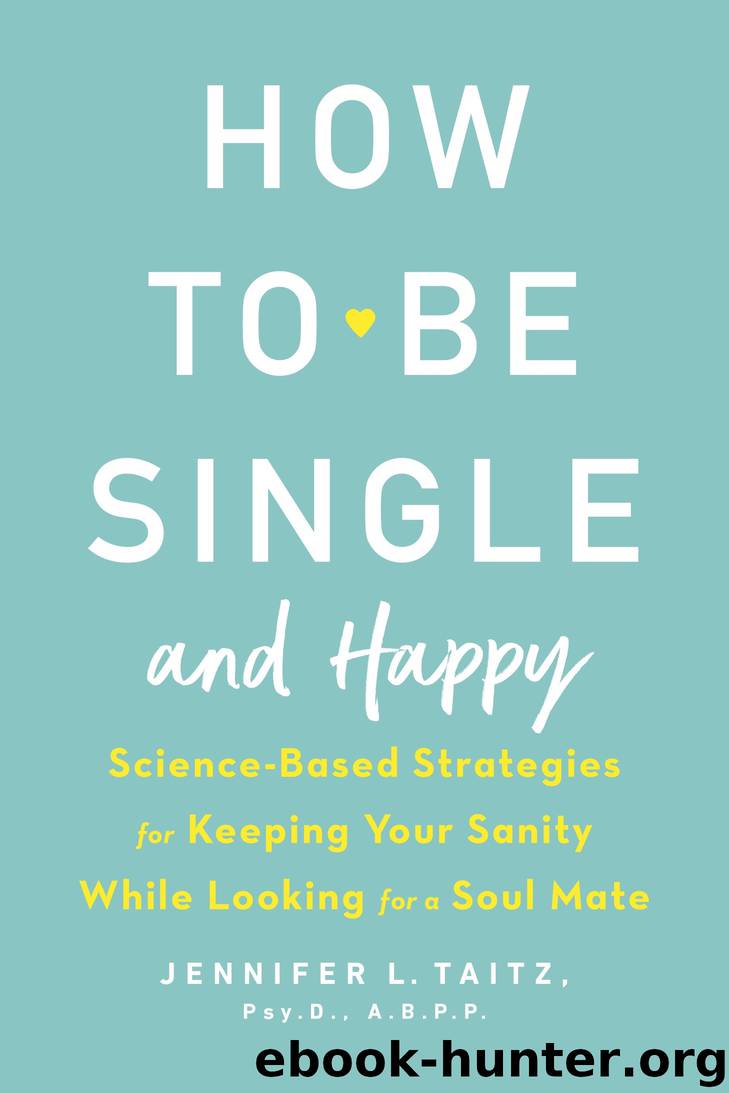How to Be Single and Happy by Jennifer Taitz

Author:Jennifer Taitz
Language: eng
Format: epub
Publisher: Penguin Publishing Group
Published: 2018-01-16T05:00:00+00:00
How do you know if a fertility clinic is reputable?
Look at the history of a clinic and ask about their success rates. (A big caveat: It’s hard to compare clinics because every practice sees a different population. A reputable program may see women who have tried multiple times elsewhere, which is a different case from a person who is trying for the first time. And while there is a movement to get the Centers for Disease Control to clearly report information on fertility center success rates, at this time, that information is hard to come by.) To be safe, make sure that the fertility group you’re visiting does at minimum 100 to 150 cycles of IVF a year. If a program isn’t doing that much IVF, they probably shouldn’t be freezing eggs.
When is the best time to freeze your eggs?
Optimally, between the ages of twenty-eight to thirty-four and certainly before age forty (your body stops allocating eggs in menopause).
The younger you are, the better the outcome. A simple ultrasound (costing roughly $200) on the second or third day of your period can let you know the number of eggs in your ovaries and whether that number looks like egg freezing would prove promising.
To successfully freeze eggs, it’s important to know how many eggs your body allocates or generates. In your twenties, you might allocate twenty-five eggs in a month; in your thirties, it might be around twenty eggs. Everyone is different. The older a woman is, the fewer eggs she’ll produce; eggs also decrease in quality with age. For optimal freezing, you want about ten to fifteen eggs frozen in one cycle (which ideally gives you the option to have several children). If you’re only allocating four to five eggs a month, or you’re what specialists call a low allocator, you may need to do egg freezing twice, maybe three times, for the process to be a reliable insurance policy.
What does egg freezing entail?
If you decide that egg freezing is a good option for you, know that the process takes about two weeks and a handful of visits to a fertility practice. Beginning on day two of your period, you start a stimulation program, an injection of follicle-stimulating hormone (FSH) and luteinizing hormone (LH) to trigger egg production. The goal is to override what your pituitary is programmed to do, which is to grow one follicle which contains an egg cell; the drugs get all fifteen follicles to grow to produce more eggs. This takes about ten days and you can inject yourself at home, like administering a little insulin shot. Most of the time, you won’t feel any side effects from the FSH and LH stimulation; in fact, many women report feeling good with higher levels of estrogen.
On days two, six, and eight (roughly), you visit your doctor for blood work and an ultrasound to make sure that the follicles are growing. By the tenth day of the injections, the follicles should be mature. That’s when you receive a
Download
This site does not store any files on its server. We only index and link to content provided by other sites. Please contact the content providers to delete copyright contents if any and email us, we'll remove relevant links or contents immediately.
The 5 Love Languages: The Secret to Love That Lasts by Gary Chapman(9809)
Doing It: Let's Talk About Sex... by Hannah Witton(9279)
Should I Stay or Should I Go? by Ramani Durvasula(7667)
The Road Less Traveled by M. Scott Peck(7601)
The Lost Art of Listening by Michael P. Nichols(7506)
Daring Greatly by Brene Brown(6512)
Beartown by Fredrik Backman(5754)
We Need to Talk by Celeste Headlee(5615)
Men In Love by Nancy Friday(5240)
The Rules Do Not Apply by Ariel Levy(4969)
The State of Affairs by Esther Perel(4719)
How To Win Friends and Influence People by Dale Carnegie(4512)
Reflections Of A Man by Mr. Amari Soul(4292)
Pillow Thoughts by Courtney Peppernell(4283)
The Ethical Slut by Janet W. Hardy(4251)
Surrounded by Idiots by Thomas Erikson(4081)
Algedonic by r.h. Sin(4062)
He's Just Not That Into You by Greg Behrendt & Liz Tuccillo(3900)
I Love You But I Don't Trust You by Mira Kirshenbaum(3875)
